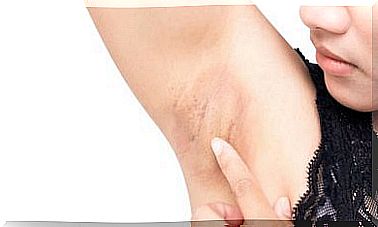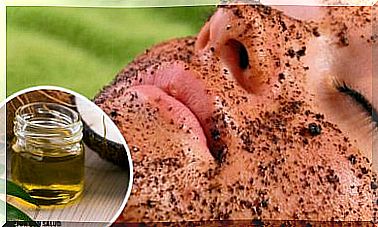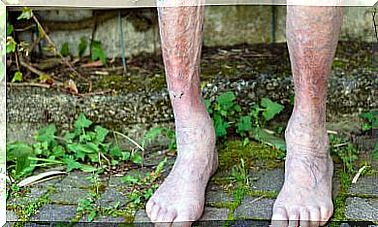Cold Intolerance: Why Does It Occur?
Nobody likes exposure to extreme temperatures, since humans have an internal thermostat that alerts them when an environment is not favorable, so that they can leave it before they suffer harm. Cold intolerance is an extreme case of the expression of this mechanism.
Beyond a lack of thick garments or very low ambient temperatures, this situation can occur due to pathologies such as anorexia, hypothyroidism or poor health in general. What to do before this worrying sign? We will detail it below.
What is cold intolerance?
The hypothalamus is a region of the brain that – together with other physiological mechanisms – acts as an internal thermostat in animals, as it sends signals that promote or inhibit the production of hormones and directly influences human body temperature.
In addition to this region of the brain, the circulatory system, the thyroid gland and the amount of body fat are other clear modulators of internal temperature. If any of these fail for any reason, it can lead to the appearance of cold intolerance.

Which can be the causes?
As we have seen, any pathology that compromises the thyroid, the circulatory system, the amount of body fat or the hypothalamus may favor the appearance of intolerance to cold. Here are some practical examples, collected by the National Library of Medicine of the United States.
Anemia
The lack of iron in the blood leads to a deficient transport of oxygen to the body tissues. This can cause weakness, cold intolerance, fatigue and headaches in the person. According to medical sources, this disorder is usually controlled by the administration of iron supplements.
Anorexia nervosa
Anorexia is characterized by excessive weight loss based on the height and age of the patient. Some studies estimate that, unfortunately, in certain populations one in 100 people suffer from this pathology.
Body fat acts as a thermal insulator and as a reserve of energy and heat in situations of environmental stress. For this reason, having a low body mass index (BMI) can translate into intolerance to cold, among other symptoms of a diverse nature.
Hypothyroidism
Cold intolerance is a typical symptom of hypothyroidism. When the thyroid gland does not produce enough thyroid hormone, the patient experiences fatigue, tiredness, feeling cold, dry skin, hair loss, and difficulty concentrating.
Other causes
We are facing a sign of multifactorial etiology, since many underlying events and pathologies can cause it. We present you, briefly, some more:
- Dehydration
- Lack of sleep.
- Circulatory problems
- Serious and chronic diseases.
- Poor general health
When to go to the doctor?
In general, when faced with clinical symptoms of fatigue, intolerance to cold, lack of concentration and general discomfort, it is always a good idea to see a doctor. An immediate visit to a professional is also essential if you get hives or epidermal spots when exposed to the cold, as this is a sign of cold hives.

How is cold intolerance diagnosed?
Diagnosis of this rare sign is made by history and physical examination. First, the healthcare professional will ask the patient questions such as the following:
- Have you always been intolerant of cold or is it a recent event?
- Have you been getting worse lately?
- How often do you complain about being cold and your surroundings say they don’t feel it?
- How is your diet and what is your general state of health?
All these questions seek, in short, to know if cold intolerance is a new event or is present “forever” in the patient. The anamnesis period will be complemented by a physical examination, which can be supported by other more exhaustive tests, such as a blood test or the calculation of the concentration of thyroid hormones.
Treatment and recommendations
We must be clear that cold intolerance is a sign or symptom of another underlying disease, so the treatment consists of solving the primary pathology. For this reason, there is no common treatment for all patients with this symptom.
What the affected individual can do — of course — is protect himself from the cold as much as possible. This includes the following:
- Avoid going outside at night or in the early hours of the morning.
- Wear several layers of clothing.
- Apply heat to your colder body areas using electric blankets.
What to remember about cold intolerance?
Cold intolerance can present as a clinical manifestation of many health problems. It is often accompanied by other symptoms, such as fatigue, headache, and general malaise. If so, and especially if the episode recurs, it is best to see a doctor.
Treatment for this condition will largely depend on its cause. For this reason, the doctor performs a physical examination, an interrogation and some complementary tests.









